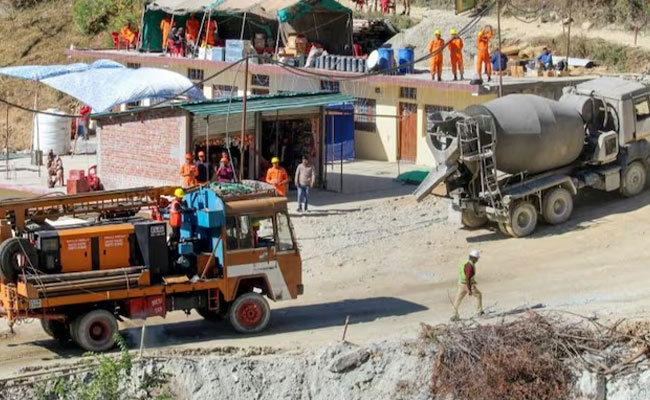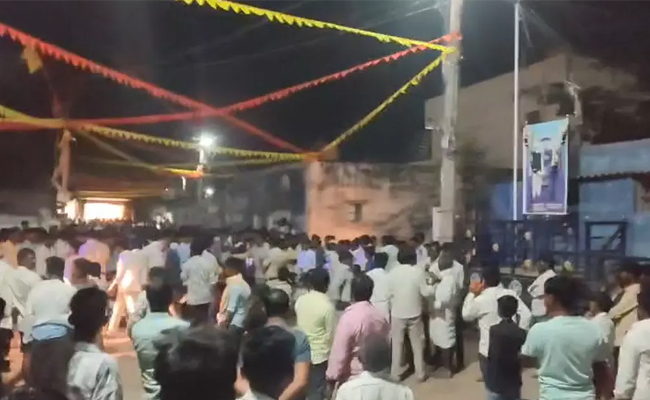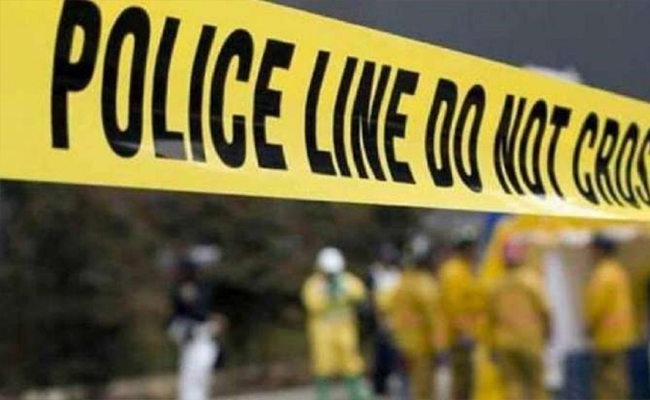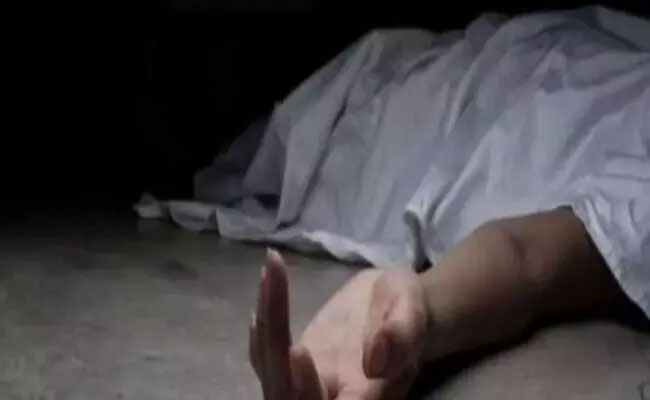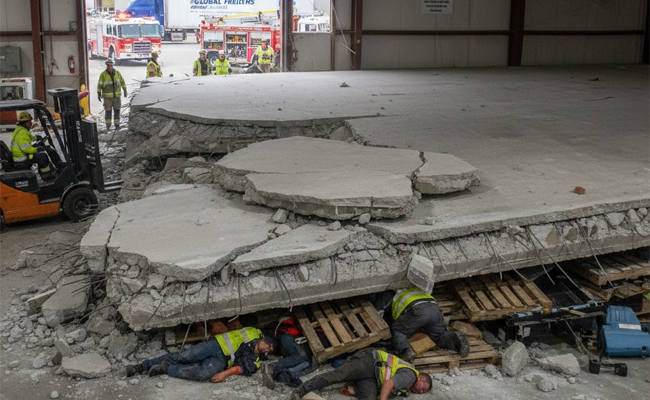Uttarkashi (PTI): With the auger machine encountering hurdles in the rubble time and again, rescuers are exploring other options such as drilling the remaining stretch manually or creating a vertical escape passage for the 41 labourers trapped inside the Silkyara tunnel for the past 13 days, officials said on Saturday.
Drilling at the collapsed portion of the tunnel to rescue the trapped men was halted again on Friday night after the auger drilling machine faced a hurdle, apparently a metal object, in yet another setback to the multi-agency effort.
Before the brief period of drilling on Friday, 46.8 metres of the 800 mm wide steel pipe had been pushed into the drilled passage -- out of the collapsed stretch estimated to be about 60 metres long. The six-inch wide tube for supplying food and other essential items to the workers had travelled 57 metres.
With one hurdle or the other not letting the auger machine carry out horizontal drilling further and lay steel pipes through the rubble to prepare an escape route for the trapped workers, the option of manual drilling is being considered for the remaining stretch of 10 to 12 metres, an official said.
However, he said, manual drilling takes longer time.
Efforts are also being made to create a vertical escape passage, officials said.
A big drilling machine was moved towards the hill above the tunnel on Saturday morning where two lowest elevation spots have been identified by experts for vertical drilling.
A 1.5-km access road to the top of the tunnel has already been built by the Border Roads Organisation (BRO) as the option of vertical drilling has been on cards for some time.
Vertical drilling is a more time-consuming and complicated option which demands more exactitude and caution due to narrower space available on top of the tunnel roof, international tunnelling expert Arnold Dicks had said a few days ago.
With mechanical drilling facing hurdles repeatedly and not making desired progress, the relatives of the trapped labourers are losing patience gradually.
"For the last two days we are being assured by officials that they (trapped workers) are being evacuated soon but something or the other happens and the process gets delayed," Devender Kisku from Banka in Bihar whose brother Virender Kisku is among the trapped workers said in a tone of disappointment.
The multi-agency rescue effort began November 12 when a portion of the under-construction tunnel on Uttarakhand's Char Dham route collapsed following a landslide, trapping workers inside.
The workers are in a built-up two-kilometre stretch of the tunnel. The trapped workers are being sent food, medicines and other essentials through the six-inch wide pipe.
A communication system has been set up, using the pipe, and the workers' relatives have spoken to them. An endoscopic camera was also pushed through this pipe, allowing rescue workers to see the condition inside.
Let the Truth be known. If you read VB and like VB, please be a VB Supporter and Help us deliver the Truth to one and all.
Koppal: Tension prevailed in Halwarti village of Koppal taluk after a clash reportedly broke out between members of Dalit and upper-caste communities over the hoisting of an Ambedkar flag during the Beeralingeshwara fair.
According to police, a verbal argument between youths from the two communities escalated into a physical confrontation, leading to unrest in the village.
In a related development, it has been alleged that members of the upper-caste community entered the house of a Dalit youth, identified as Gavisiddappa Hosamani, damaged the door and vandalised the front portion of the house.
As a precautionary measure, additional police personnel have been deployed in the village to maintain law and order.
Police said a complaint has been registered at the Koppal Rural Police Station and five persons have been arrested in connection with the incident. Further investigation is under way.

